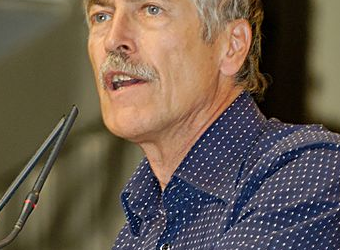Elizabeth Warren points out that there “is nobody in this country who got rich on his own. Nobody.” Meaning: if the rich don’t pay their fair share of the taxes that educate their workers and provide roads, security and many other things, they are essentially stealing from everyone else.
The biggest “theft” by the 1 percent has been of the primary source of wealth—knowledge—for its own benefit.
Knowledge? Yes, of course, and increasingly so. The fact is, most of what we call wealth is now known to be overwhelmingly the product of technical, scientific and other knowledge—and most of this innovation derives from socially inherited knowledge. Which means that, except for trivial amounts, it was simply not created by the 1 percent who enjoy the lion’s share of its benefits. Most of it was created, historically, by society—which is to say, the other 99 percent.
Take an obvious example: Many of the advances that have propelled our high-tech economy in recent decades grew directly out of research programs financed and, often, collaboratively developed, by the federal government and paid for by the taxpayer. The Internet, to take the most well-known example, began as a government defense project, the Advanced Research Projects Agency Network (ARPANET), in the 1960s. Today’s vast software industry rests on a foundation of computer language and operating hardware developed, in large part, with public support. The Bill Gateses of the world might still be working with vacuum tubes and punch cards were it not for critical research and technology programs created or financed by the federal government.
The iPhone is another example: Its microchips, cellular communication abilities and global positioning system (GPS) all flowed from developments traceable to significant direct and indirect public support from the military and space programs. The “revolutionary” multi-touch screen was developed by University of Delaware researchers financially supported by the National Science Foundation and the CIA. It is not only electronics: of the 15 modern US-developed “blockbuster” drugs with over $1 billion in sales, 13 received significant public research and development support.
But taxpayer-financed government programs (including, of course, public education) are only the tip of the iceberg. And here we are not talking rhetoric, we are talking the stuff of Nobel prizes. Over the last several decades, economic research has begun to pinpoint much more precisely how much of what we call “wealth” in general derives from long, steady, century-by-century advances in knowledge—and how much any one individual at any point in time can be said to have earned and “deserved.”
Recent estimates indicate, for instance, that national output per capita has increased more than twentyfold since 1800. Output per hour worked has increased an estimated fifteenfold since 1870 alone. Yet the modern person is likely to work each hour with no greater commitment, risk or intelligence than his counterpart from the past. The primary reason for such huge gains is that, on the whole, scientific, technical and cultural knowledge has grown at a scale and pace that far outstrips any other factor in the nation’s economic achievement.
A half-century ago, in 1957, economist Robert Solow showed that nearly 90 percent of productivity growth in the first half of the 20th century alone, from 1909 to 1949, could only be attributed to technical change in the broadest sense. The supply of labor and capital—what workers and employers contribute – appeared almost incidental to this massive technological “residual.” (Solow received the Nobel Prize for this and related work in 1987.)
The truly central and demanding question is obviously this: If most of what we have today is attributable to knowledge advances that we all inherit in common, why, specifically, should this gift of our collective history not more generously benefit all members of society? The top 1 percent of US households now receives far more income than the bottom 150 million Americans combined. The richest 1 percent of households owns nearly half of all investment assets (stocks and mutual funds, financial securities, business equity, trusts, nonhome real estate). A mere 400 individuals at the top have a combined net worth greater than the bottom 60 percent of the nation taken together. If America’s vast wealth is mainly a gift of our common past, how, specifically, can such disparities be justified?
Early in the American republic, Thomas Paine urged that everything “beyond what a man’s own hands produce” was a gift that came to him simply by living in society, and, hence, “he owes on every principle of justice, of gratitude, and of civilization, a part of that accumulation back again to society from whence the whole came.”
To be sure, someone who genuinely makes a real contribution deserves to be rewarded. But today, most of what is created by all of society gets turned into wealth, and, somehow, directly or indirectly, shunted away from the 99 percent by the 1 percent. The demand of the various occupations that this theft be reversed is right on target—both in what we know about how wealth is created, and, above all, in what we know about how a just society ought to organize its affairs.






